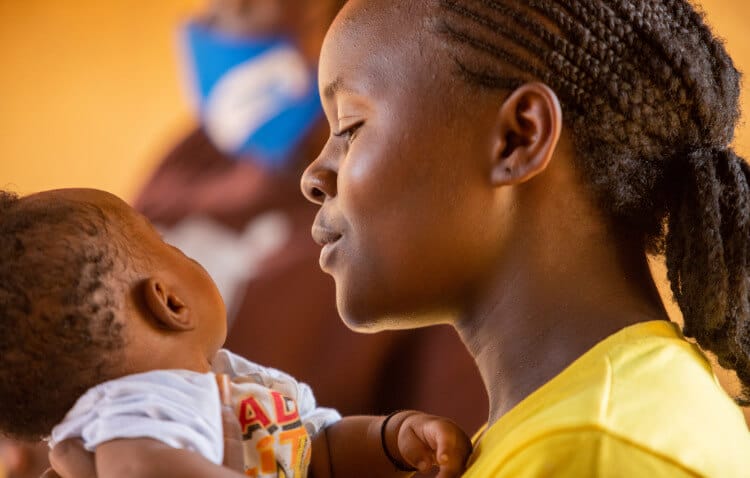While most rural pregnant women in Liberia intend to give birth in a health facility, there are many barriers that often prevent them from following through on this intention. Facility-based childbirth requires extensive preparation, from determining when and how to leave for the facility to saving for the cost of transportation and drugs and medical supplies required at the facility. This can create delays in receiving care throughout the course of a woman’s pregnancy and ultimately in arriving and receiving care at the time of delivery.
In tackling this challenge, our Global Health team, working through the USAID-funded social and behavior change project Breakthrough ACTION, learned about the important and influential role of traditionally trained midwives (TTM), community-based health workers who support and counsel women during pregnancy and often accompany them to the facility both for prenatal care and at the time of labor and delivery. Pregnant women primarily seek advice from the TTMs during pregnancy as a trusted source of information. TTMs are often the first point of care during pregnancy, and they advise women on when to leave for the facility for delivery.
To support women in identifying the necessary logistics and developing a plan to reach the health facility at the time of labor, as well as saving the funds required to support the plan, we conducted a collaborative co-design process to develop a suite of ideas. The co-design process engaged officials from the Liberian Ministry of Health, health care providers, TTMs, and pregnant women and their families. Many of the ideas leveraged the important relationship between women and TTMs; however, we were faced with a design challenge given the realities of the rural Liberian context:
How do we create an easy to use, engaging delivery planning and saving tool for a low literacy population that is both intuitive and requires minimal support and training?
We decided to leverage the tradition of Liberian storytelling to create stories that could be retold by TTMs and could convey the importance of planning for facility-based delivery. Liberian storytelling is a traditional improvisational and participatory oral art form used to share important lessons, oral history, and customs. To develop compelling and memorable stories in a familiar Liberian tradition that could impart important details about how to prepare and save for facility-based delivery, the project worked with Gbahtou Comgbaye, a Philadelphia-based Liberian storyteller.
To explore Gbahtou’s stories and learn more about our other facility-based delivery designs visit our design guide.
Interested in learning more about our work improving global health outcomes using behavioral science? Visit ideas42.org/global-health or email gh@ideas42.org.



